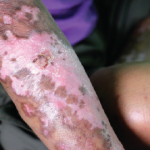A new measurement tool could mean big changes for the treatment of rheumatoid arthritis (RA). With funding from the Rheumatology Research Foundation, Gregg Silverman, MD, led a study that developed a means for the measurement of immunologic memory in autoimmune disease. This new tool will allow rheumatologists and investigators to measure the immunologic defects that…





